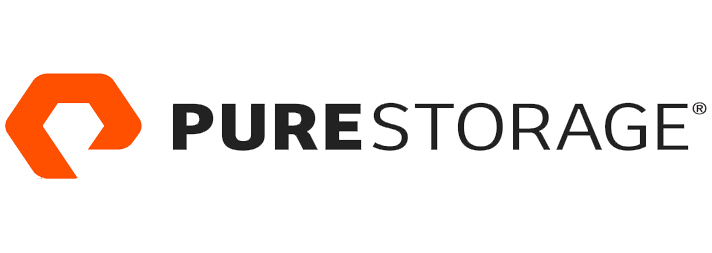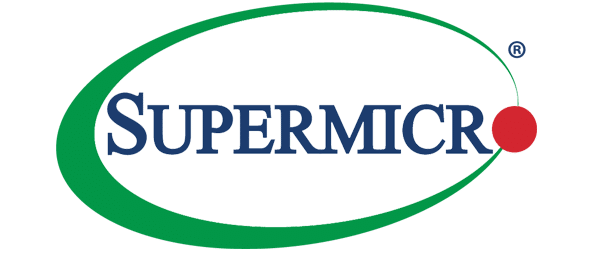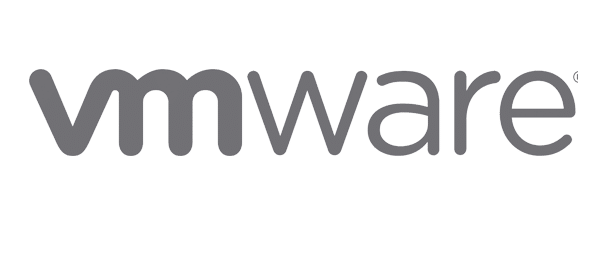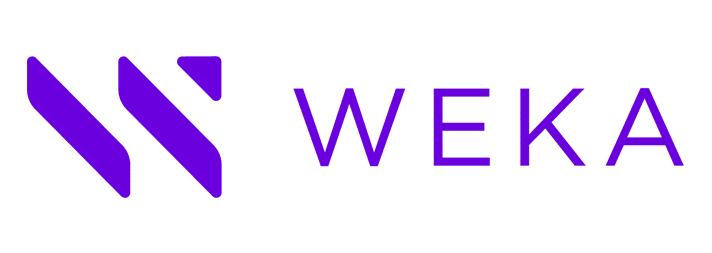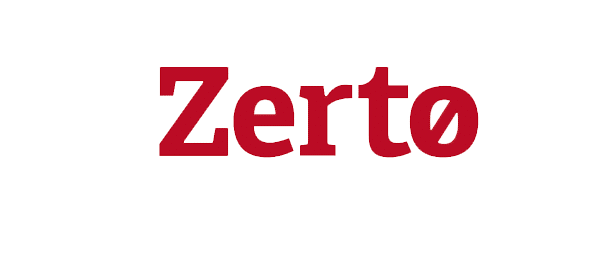Destroy Data Silos: 7 Ways Cloud Storage Advances Healthcare Data Management
Healthcare organizations produce massive amounts of unorganized data, and this trend is sure to continue as medical technology advances, creating larger files to store. Healthcare IT solutions related to cloud storage are a modern way for IT teams to approach healthcare data management to collect, organize, and store large volumes of sensitive information.
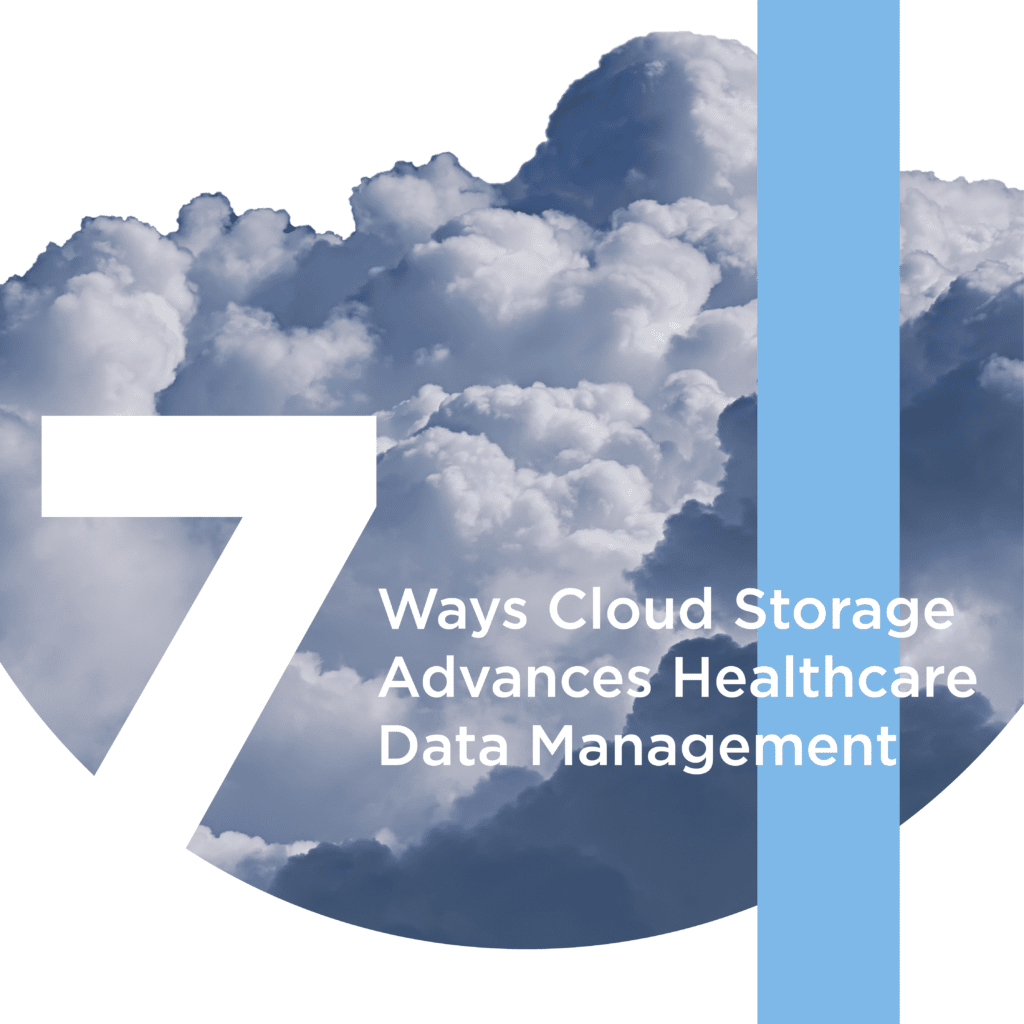
What Is Healthcare Data Management?
Healthcare data management is the strategic collection, integration, and organization of healthcare information across any format to help healthcare organizations utilize data to improve organizational operations and provide greater value to patients.
The strategy behind data management is a growing area of interest because today’s organizations are producing exponentially more data than ever before. Methods of managing this high volume of data need to evolve in order for healthcare providers to utilize the data they have on hand.
Factors Driving The Need for Better Data Management
Healthcare organizations are up against a data revolution. This change is producing unprecedented amounts of data that must be stored according to specific protocols and for an extended period of time. Factors that influence the rising volume of data include:
- The shift from paper to electronic medical records (EMRs)
- An increase in technology producing large files, such as MRIs or X-rays
- Tighter regulations to manage protected healthcare information (PHI)

The fastest growing segment of healthcare data is unstructured data, such as what is produced by CT scans and PET scans. In addition to long-term record-keeping, medical data management requires the capacity to regularly update data, such as patient identification, insurance enrollment, and claim information.
Not to mention all the potential data that has yet to be cleaned and analyzed! Information from wearable fitness devices, or DNA submitted to databases is not yet used by healthcare organizations. The potential for how this information could be used to proactively support patient health is unknown.
Today’s healthcare organizations take up more digital space than ever before — which is why the strategy for healthcare data management has to evolve. Healthcare teams that use a cloud storage solution help their organizations stay competitive in the marketplace by leveraging data to support the patient experience.
Benefits of Modern Data Management in Healthcare
Old habits die hard, and hanging onto legacy storage models is no exception. However, nine out of 10 healthcare organizations use EHRs today, making the evolution to cloud storage a realistic next step. Cloud storage has the ability to reduce data solios for a better understanding of the data healthcare professionals have access to. Benefits of modern data storage include:
- Comprehensive Analysis: Cloud solutions allow customized segmentation of data for information such as patient groups or households.
- Patient Engagement: Modern technology introduces automation into patient care for features such as reminders about upcoming appointments and preventative healthcare strategies.
- Health Outcomes: Access to aggregated data can help monitor patient health trends over time and provide proactive measures to counter health issues.
- Decision-Making: Tracking patient data can help inform decisions such as what type of medical equipment to invest in, or which type of professionals to hire.
- Analyze Activity: Reducing data silos helps teams gain insight into staff activity, including time invested in different treatments and success rates.
This list of benefits of modern healthcare data management only scratches the surface of how healthcare data can be utilized once the data silos are knocked down.

7 Reasons to Use the Cloud for Healthcare Data Management
Using a cloud solution to manage the growing volume of healthcare data provides the ultimate flexibility to meet the changing needs and strict requirements of the healthcare industry.
1. Only pay for the technology you need.
Cloud storage boasts no upfront cost for hardware purchases. Plus it eliminates overprovisioning with fast scalability, allowing the storage solutions to flex as an organization grows. This financial model is called “pay-as-you-go” or “subscription-based” and it’s quickly sweeping the tech industry.
2. Get data agility and flexibility on-demand.
The beauty of cloud storage is that it can scale at the click of a button, so organizations are prepared with the storage space they need. In addition, modern storage reduces data silos and encourages data interoperability. Fast retrieval of data also enables reliable shareability. After all, data collection is useless if it’s difficult to access.
3. Stay protected with high-end security.
The data that healthcare organizations collect is a gold mine for cybercriminals because it contains valuable information that hackers can use to exploit individuals and companies. Hackers are relentless with their methods, leading human error to be the number one reason data breaches happen. With cloud storage, IT teams rely less on individual decision-making and more on role-based access controls to provide authorized use of privileged information.
4. Free up limited resources for valuable initiatives.
The shortage of technical talent is a growing issue for companies looking to advance their IT environment. One way IT teams can attract and retain talent is by handing over routine tasks to technology service providers. Important, but less interesting, projects such as redundancy, replication, and data backup can be included with cloud storage packages and easily outsourced to a trusted IT partner.
5. Cloud storage is a manageable entry point to pursue hybrid cloud.
The perfect storage solution is different for every business. Oftentimes, healthcare organizations find that a balance between on-premise servers and cloud storage is the right mix for their needs. This is called a hybrid solution, and it’s a manageable entry point for medical companies, hospitals, and healthcare systems to explore the cloud because of its customization between tight control and flexible storage capacity.
6. Achieve HIPAA compliance to protect sensitive data.
Healthcare data is under strict requirements to comply with HIPAA’s regulations aimed at protecting sensitive information. Technology solutions providers are well aware that healthcare information is sensitive, and that the cloud has a perception for being less secure than on-premise infrastructure. Because of this, software engineers intentionally equip cloud storage solutions with the most advanced security features that ensure compliance. When working with top cloud storage technologies, such as Commvault, healthcare organizations can rest easy knowing their data protocol complies with regulations.
7. Unlock innovation with big data analysis.
Cloud storage solutions are equipped with the technology to clean massive amounts of data and organize information, which not only aids compliance, but it also enables automation for mass analysis of data to find trends. Siloed data that’s difficult to access and piece together is a major challenge with utilizing data to its full potential. Cloud storage introduces the technology to perform this type of analysis with less manual effort.
Modern cloud storage solutions boast benefits that allow today’s healthcare organizations to meet the demands for ever-growing amounts of data.
Forrester concluded that one of the first steps healthcare companies can take on their journey to the cloud is hiring a technology service provider that specializes in the healthcare industry. Following this best practice helps eliminate gaps in technical knowledge in-house around how IT solutions integrate to meet business needs.
Comport has spent 30+ years in technology solutions with deep roots in the healthcare industry. Geoff Bakeman leads our healthcare consulting services and is available for a free first consultation to get started with optimizing any healthcare IT environment.
It’s time for a better data management strategy, and Comport is here to help. Explore our medical data management services or get started by requesting a free first consultation with Comport’s VP of Healthcare, Geoff Bakeman, at [email protected].
Author: Bill Flatley, Field CTO for Healthcare
Bill is responsible for technical strategies and recommendations for Comport’s Healthcare clients. His extensive experience includes four healthcare systems in leadership roles supporting Clinical Applications, Digital Health, and Office of the CIO as the primary liaison between IT and the business.

















